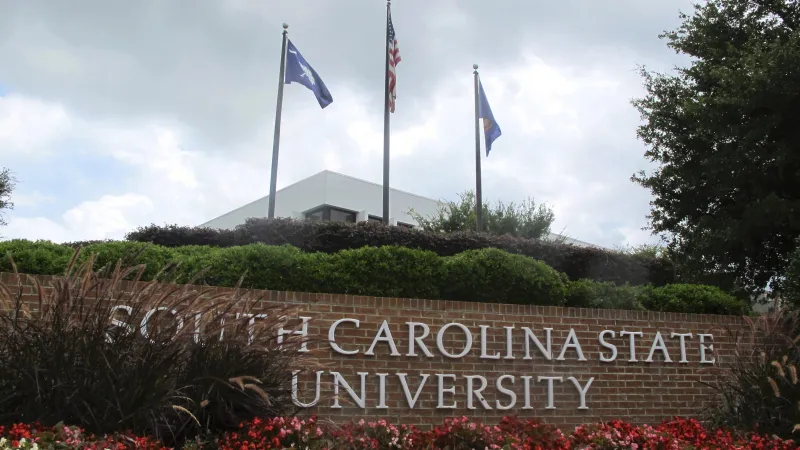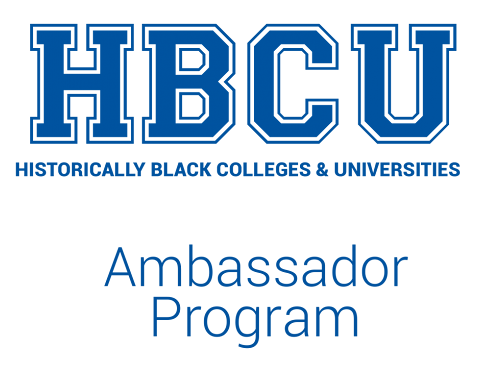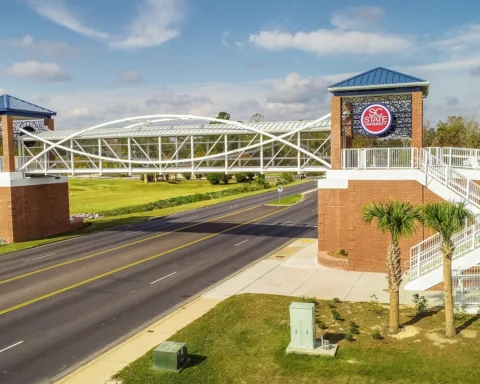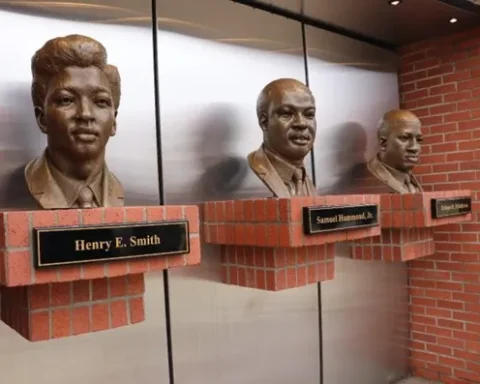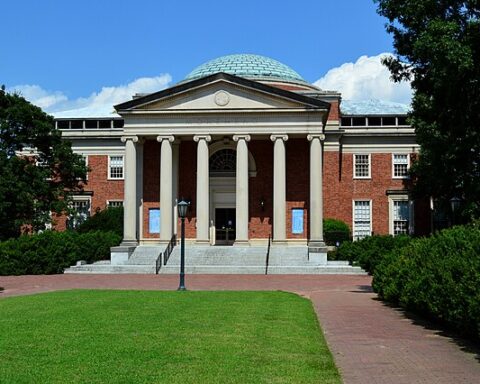By Ken Makin
South Carolina State University is a campus forever shaped – and shaken – by protest. Feb. 8, 1968, is a date that marks perhaps the most tragic day in the school’s history: the Orangeburg Massacre, a civil rights protest that turned deadly after three unarmed students were shot and killed by police.
Long before his tenure as a member of the Georgia House of Representatives, Earnest Smith was a hopeful freshman at South Carolina State. He arrived on campus during the turbulent 1970s, with the violent massacre in 1968 only a few years past.
When Smith heard about a recent proposal from South Carolina State’s Board of Trustees to remove six majors, including history and social studies, it was as if he had been pulled back to his college days – and the memories were not pleasant.
Smith attended the trial of Cleveland Sellers, who was the only person convicted in the aftermath of the protest. He also saw the effects of South Carolina State’s loss of majors firsthand in 1971 when the university’s agricultural and engineering programs were terminated.
“Some of my classmates, they literally cried my sophomore year, because going into their junior year, they had to leave South Carolina State to either go to Clemson [University] or [University of South] Carolina because there were engineering students,” Smith said. “There’s still a push to basically neutralize South Carolina State and the impact it has.”
The conflict over the Board of Trustees’ proposal, which the board has postponed for now, creates a juxtaposition between capitalism and community, between the bottom line and the higher calling of historically Black colleges and universities.
Christopher Rounds, an assistant professor of history in South Carolina State’s department of social sciences, believes this latest saga at South Carolina State is setting a dangerous precedent.
“Universities are increasingly governed the way that corporations are run, where everything is about data. There’s gotta be some place in our society that is based on loftier principles,” Rounds said. “Right now, there is a cultural war going on against African American history. … The elimination of humanity majors that focus on things like this and ensure that the younger generation is aware of what is going on and why their history cannot be erased or censored.
“I mean, HBCUs above all are supposed to provide a platform for organizing and giving shape to resistance.”
In late January, nearly 60 years after the Orangeburg Massacre, South Carolina State students marched again – this time in silent rebuke of the Board of Trustees’ proposal. Among the organizations represented was the South Carolina Education Association, a state affiliate of the National Education Association.
“When I heard that these programs were on the verge of getting eliminated, I knew in my spirit that I had to do something,” association student president Adriana Perez told WIS News. “Even if they weren’t gonna affect my students or my future, I was technically a middle-level education major in November with a concentration in English and social studies, and I changed my major as soon as I found out because social studies was on the verge of getting cut as well.”
Perez and students sought transparency from the board, a sentiment also shared by South Carolina State professors.
“Frankly, my colleagues and I were blindsided to a degree,” Rounds said. “We knew, of course, that the history program had low enrollment. They had requested that we put together a proposal for initiatives and how we would increase enrollment in the program.”
According to Rounds, the proposal he and his colleagues created early in the fall semester was approved but not given enough time to generate results.
“We had a department meeting in November, and we were informed that the board was going to meet in two days’ time to vote on whether these programs should be eliminated,” he said. “We were kind of aghast that not only was this happening with such suddenness but that we hadn’t even been given the opportunity to put some of these initiatives in place.”
Andscape reached out to Sam Watson, South Carolina State’s director of university relations, who served as a liaison to President Alexander Conyers and Frederick Evans, the school’s provost and vice president for academic affairs. In a statement, the administration said, “The SC State University’s Board of Trustees’ (BOT) rationale for action is based upon an official institutional assessment of the academic program inventory that identified academic programs that failed to maintain or meet the enrollment and degrees awarded criterion as established by the SC Commission on Higher Education.”
Further, Watson said, the recommendation to delete academic programs is based on a decade’s worth of data and not “concerns, popularity or hidden agendas.”
“Concerns were expressed to the administration through our established protocols that included college-wide meetings, dean(s) council meetings, executive summary reports sent to all university employees, disaggregated data shared with all university employees, an official presentation to the academic leadership team, and an official report to the BOT,” the statement said. “In short, concerns will not change trend data, respectfully.”
Alison McLetchie, an assistant professor in the department of social sciences, said the removal of academic programs would be “devastating.”
“South Carolina State University, along with Claflin [University] in Orangeburg, has nurtured, supported and produced some extremely important citizens. Three of those citizens we commemorated – they sacrificed their lives,” McLetchie said of the students killed in the Orangeburg Massacre. “If we as a university give up our history program and our social studies education program, we are handing over to some other institution the right to our heritage.”
That legacy is important to alumni such as Smith, whose daughter also attended South Carolina State. In times of adversity, Smith said, what must endure is leadership.
“There’s an old African proverb about blooming where you are planted,” he said. “Being a leader means you step up and stand in the gap. I may not be the one who receives the benefits that I’m fighting for, but the ones after me will.”

